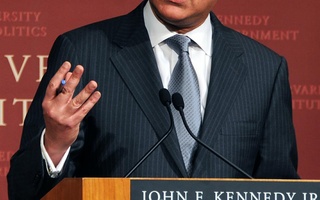SIXTEEN months after East Pakistan, with the help of Indian military might, successfully won its war of independence from West Pakistan to form the nation of Bangladesh, political strife continues to plague the Asian subcontinent.
Both India and Pakistan are faced with the problem of political splinter groups advocating territorial secession, while Bangladesh must confront the economic problems of an emerging Third World nation.
There is also the diplomatic issue for the Bengali government of repatriating 93,000 Pakistani POWs (including 20,000 civilians) being held in India from the 1971 war. The POW issue is a crucial one, since it thus far has chilled the already tenuous diplomatic relations on the sub-continent.
The stalemate over the return of the Pakistani POWs has revolved around the issue of diplomatic recognition for Bangladesh. Thus far, Bangladesh has maintained that negotiations on repatriation of the prisoners cannot be held until Pakistan recognizes the legitimacy of the Bengali government. Pakistan has said that the prisoners should have been repatriated at the war's end in accordance with the Geneva Convention.
In the midst of the deadlock, India's alliance with Bangladesh has compelled her to keep the prisoners with the burden of supporting the POWs and justifying her position in the light of world opinion urging their release.
Recently, the issue has been complicated by Pakistani accusations of murder and torture of prisoners by Indian guards and by trial proceedings being held by the Bengali government against Pakistanis charged with war crimes.
It is undoubtedly clear that Bangladesh has established itself as a sovereign state free of any connections with the Pakistani government. The overwhelming victory that Prime Minister Sheikh Mujibur Rahman and his Awami League party won in March at the polls has given them a clear mandate in the Bengali government and in negotiations concerning POW return.
On March 4, Sheikh Mujib reaffirmed the Bengali demand that the prisoners could only be returned after Pakistan recognizes Bangladesh, and said that the proposed war crime trials had to be held "in the name of humanity."
Apparently, proceedings for the war crime trials are already underway. On April 3, Banglar Bani, the ruling Awami League journal of Bangladesh, said that 300 Pakistani prisoners would be handed over by India to Bangladesh for trial.
Thus far, no trials have been held, but the adamant threats of the Bengalis have increased diplomatic tension over the POW issue.
The actions of Sheikh Mujib have conflicted sharply with a statement by President Zulfikar Ali Bhutto of Pakistan last month in an interview with Time magazine. Bhutto said that Pakistan was "determined to recognize [Bangladesh] provided there is machinery whereby we get our prisoners of war back."
Bhutto went on to say that he felt the stalemate would be broken after the March elections in Bangladesh and the framing of a new constitution for Pakistan.
At the moment, the election of Sheikh Mujib has not changed Bangladesh's position on the prisoners, while the framing of a new constitution for Pakistan was completed last week. The old constitution had still provided for the existence of East Pakistan, a provision which the Bengalis opposed.
The question of whether or not Bhutto will break the deadlock in the POW issue and accord recognition to Bangladesh has thus far been viewed as crucial to the present situation. It seems apparent, however, that such recognition will not come before there is an agreement upon some mechanism for releasing the prisoners.
Bhutto reaffirmed his statements in Time magazine in an interview for London Weekend in late March, stating that it would be wrong to put Pakistani prisoners on trial since they were only discharging their duty in an effort to keep the country intact.
Read more in News
Journey Through a Troubled RegionRecommended Articles
-
PAKISTAN REAPPRAISALTo the Editors of the CRIMSON: Mr.Beecher's article "Pakistan Palaver" in your issue of Nov. 12 has served a good
-
Joi BanglaH ISTORY has its forgotten tragedies, tired little episodes played out against a backdrop of inexorable forces and collective consciousness.
-
A Massacre in MumbaiLast week, many across the globe watched in abject horror as an armed band of terrorists, backed by radicals suspected
-
You Can Fool Us OnceYesterday morning, the leaders of India’s right-wing Bharatiya Janata Party, called for a United Nations mandate “to destroy the edifice
-
South Asia After MumbaiThe first blood was spilled at 9:30pm. An hour later, the world realized that Mumbai was under a coordinated terrorist
-
 Foreign Minister Qureshi Discusses US-Pakistan Relations
Foreign Minister Qureshi Discusses US-Pakistan Relations













